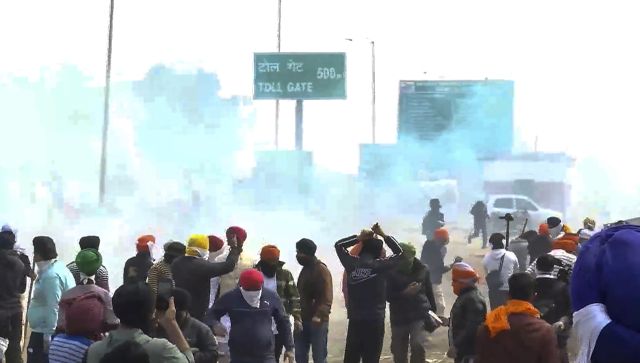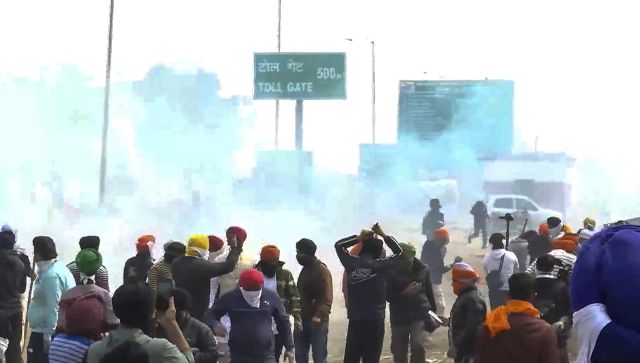It is about half past five in the evening. I’m seated inside an auditorium where public intellectual Pratap Bhanu Mehta will soon be on the stage to discuss ‘how to make choices in the age of populism’. People of all ages have begun to trickle in. Mehta takes the stage, where he is introduced by well-known professor and columnist Apoorvanand. In the audience are people like the former ABP anchor Punya Prasun Bajpai.
This is the second of the Neelabh Mishra Dialogues, the first was held in February with economist Amartya Sen and journalist Sidharth Vardarajan. The politics, therefore, is of a liberal nature, the treatment also of an alternate, progressive variety, but the venue is markedly different. This isn’t the India International Centre (IIC), a university hall or even the Press Club. This is Jawahar Bhawan.
Over the course of a year or so, Jawahar Bhawan has quietly become the site of alternate politics — even dissent. Seasoned journalist Nilanjan Mukhopadhyay believes this is a welcome change. “I have noticed it for the last year or so. Jawahar Bhawan is now open to free discussions and debates on the kind of politics that might be against the ruling dispensation. It is reflective of shrinking open spaces, in general, in India. They have either become too expensive or have been party to the squeezing out of one particular group,” Nilanjan says. The more popular venues in the capital that let out space for political discussions of this sort are IIC and the India Habitat Centre (IHC). But as Apoorvanand explains, even these popular arenas have become difficult to get. “I’ve had a personal experience with IIC myself. Previously, universities and other sites were easy to get and they were liberal enough to allow all kinds of discussions. Over the last three or four years, it has become much more difficult,” he says.
Jawahar Bhawan’s history is as chequered and controversial as its present is eventful. It was bought by Indira Gandhi during the time of the Emergency. There was a battle for proprietorship between the old and the breakaway Congress in the 80s, and a possible shift of the Congress headquarters to the building never quite materialised as Rajiv Gandhi had once planned. To add to that, it has an unwieldy design, a sentiment that Nilanjan echoes. Yubaraj Ghimire, in a column in 1992 even plainly called it ‘ugly’. “I find the design very odd. I’ve never really understood it, the entry and exit of it all,” Nilanjan says.
Getting to the auditorium took me a fair amount of navigation as well. The architecture aside, the politics has surely woken up over the last year or so. Last month, former Aam Aadmi Party (AAP) member Ashutosh’s book Hindu Rashtra (Westland) was launched at the Bhawan. “There is hostility in the environment and open debate and discussion has been difficult. Many places have become reluctant to lend their space due to the threat of violence and also the fear of the central government and its agencies. Several educational institutions have witnessed violent activities by affiliates of ruling party,” Ashutosh says.
Ashutosh also points to the fact that not only have spaces shrunk in the capital, but have also become dangerous to gather at. “Jawahar Bhawan has become a place of dissent. One of the reasons is that it is very liberal in lending its place. And there is some sense of security too, that hostile elements would not dare come over there,” he says. Apoorvanand speaks of the liberal attitude of the Rajiv Gandhi Foundation in this respect. The Foundation looks after the upkeep and operations of the Bhawan. “The foundation has been open-minded and allowed for liberal use of the venue at affordable rates. That part is important. If you want to quieten certain voices, there are two ways to do it: Either refuse space, or simply make it unaffordable. The fact that the Foundation is allowing the venue to be used liberally of late is welcoming. Perhaps, even fitting, that it embodies the liberal values of Nehru himself,” Apoorvanand says.
Appreciation for this new open-arms stance is across the board, but how does one analyse the role of the Congress party in all of this? ”I believe it is a way of building partnerships. If you look at other places that have served as affordable sites, it was the Gandhi Peace Foundation on Deen Dayal Upadhyay Marg, even through years when the Congress was in power. Jawahar Bhawan is more central, more comfortable, and that is why it also makes more sense. I am confident it will now continue to be so,” Nilanjan says. The side gate that serves as one of the exits directly overlooks the office of the Youth Congress. The manner in which a Congress-run facility has thrown its door open to alternate politics is at least a signal of its intent, if not its politics. “I’ll be most disappointed if this did not continue, should the Congress come to power in May. I will be the first one to raise my hand then, and question. Because that is our job, that is what we are doing at these venues, we are asking questions,” Nilanjan says.


)




)
)
)
)
)
)
)
)